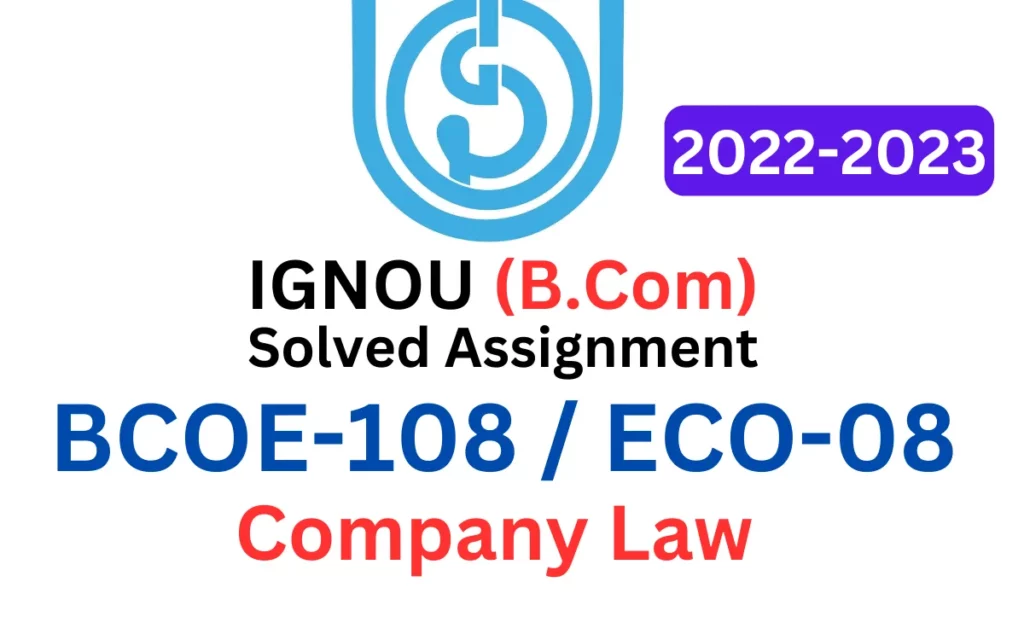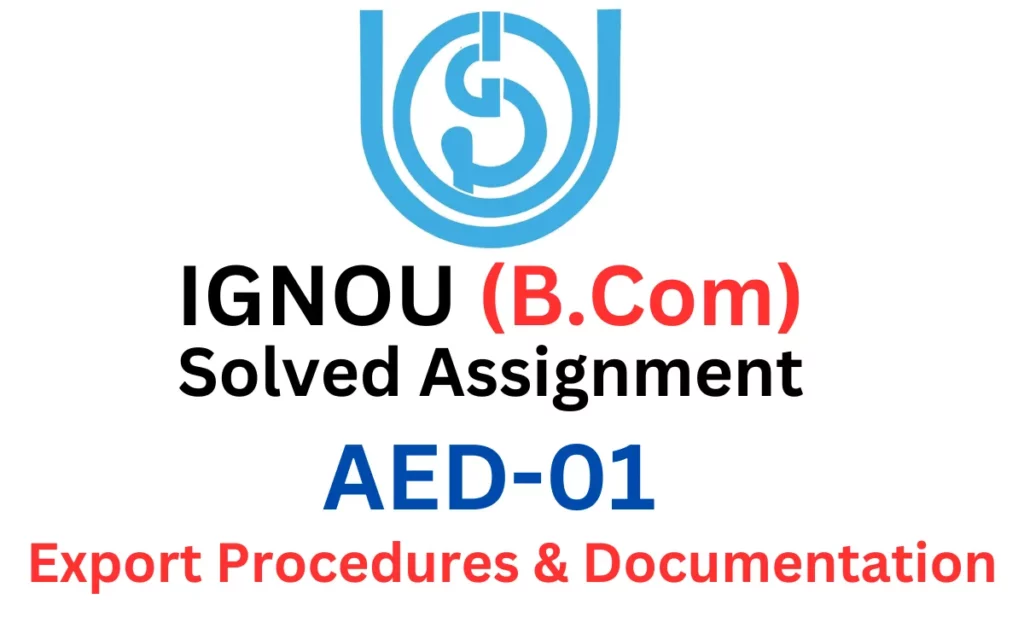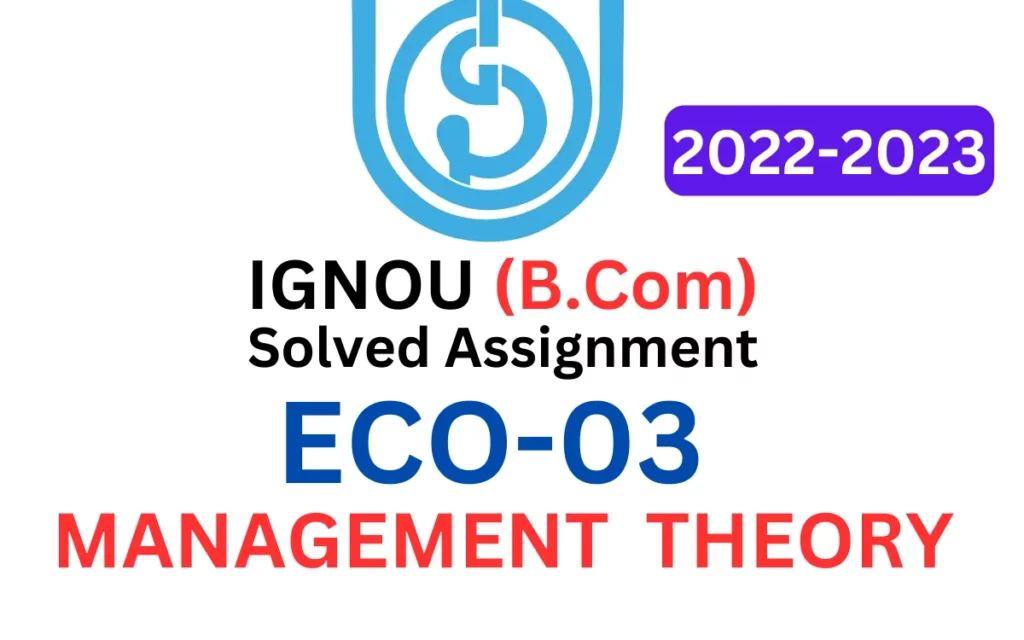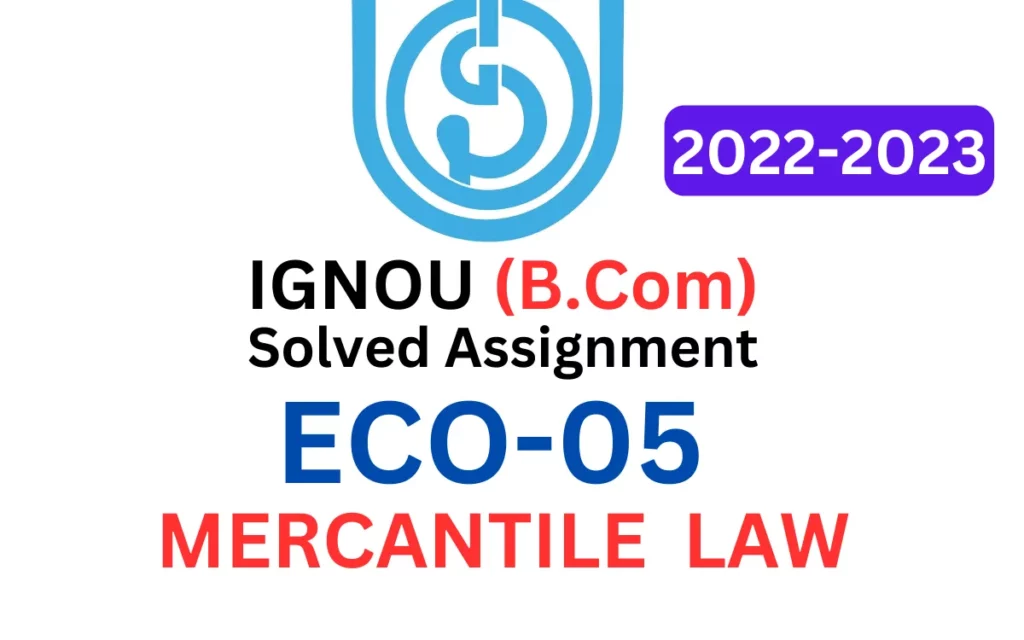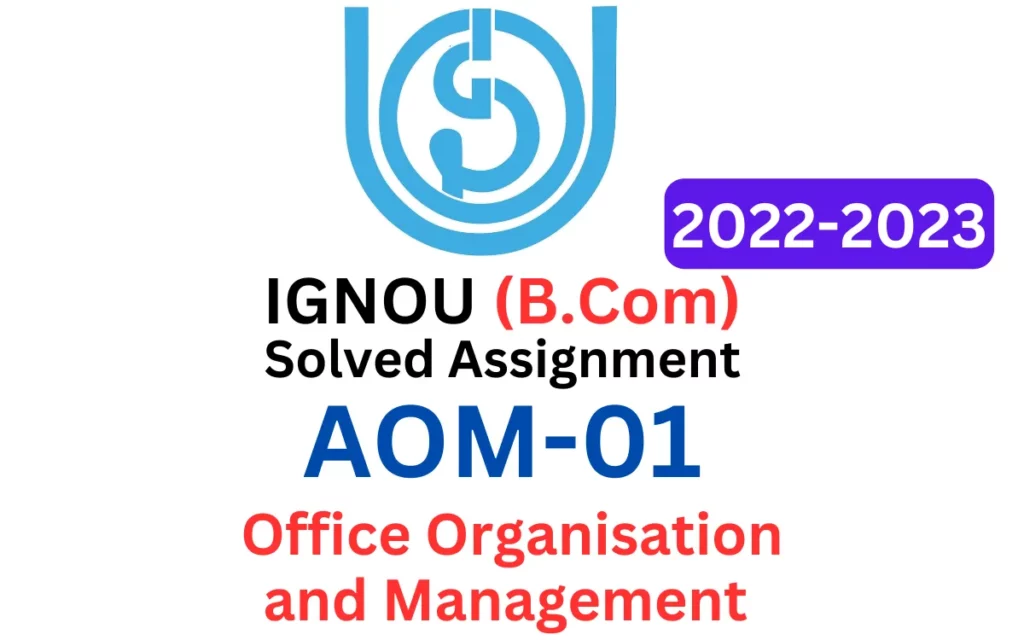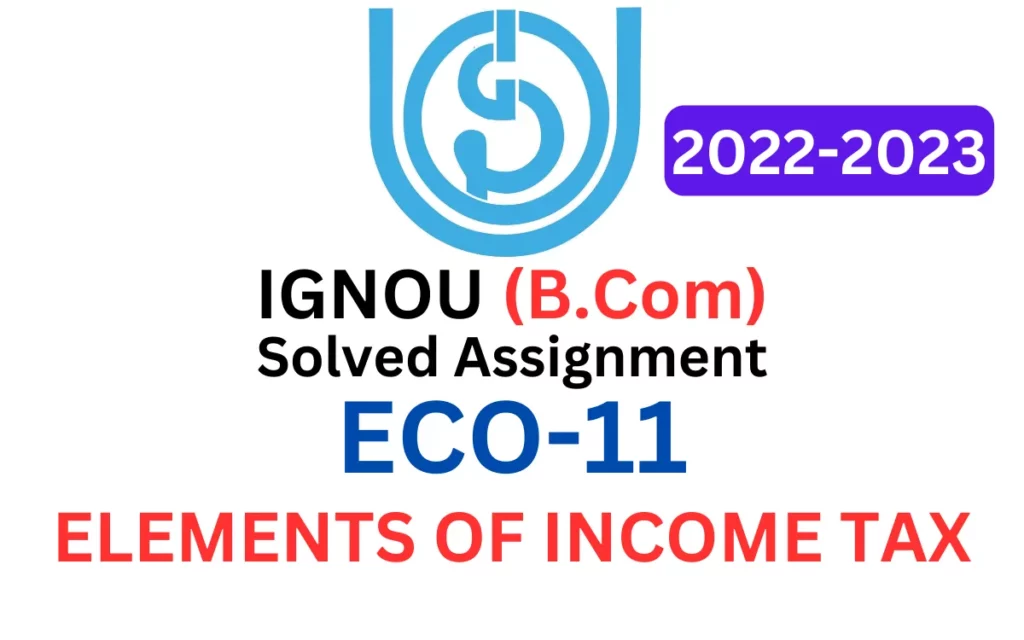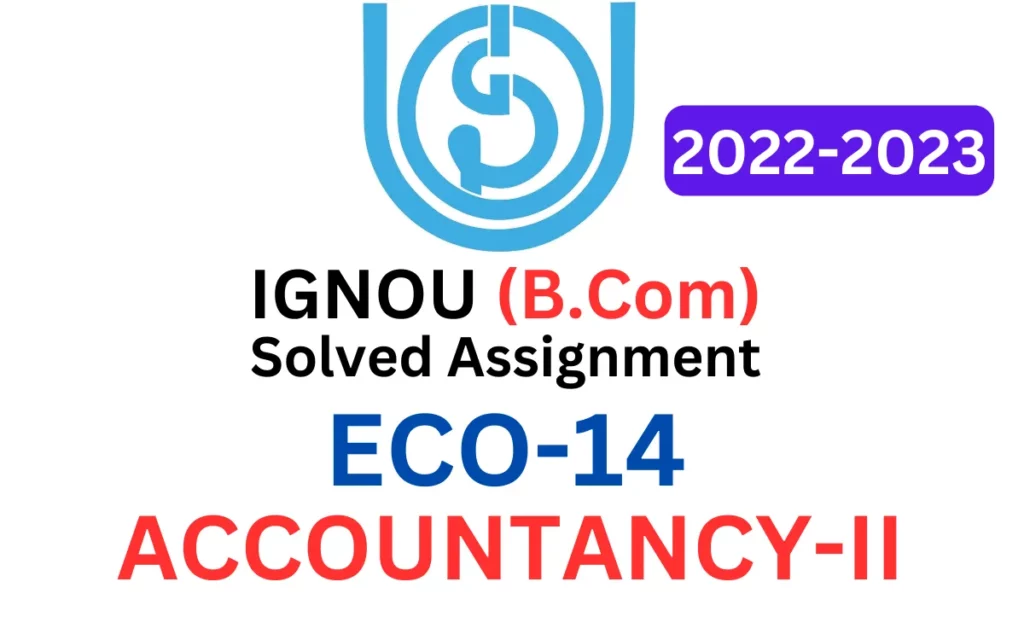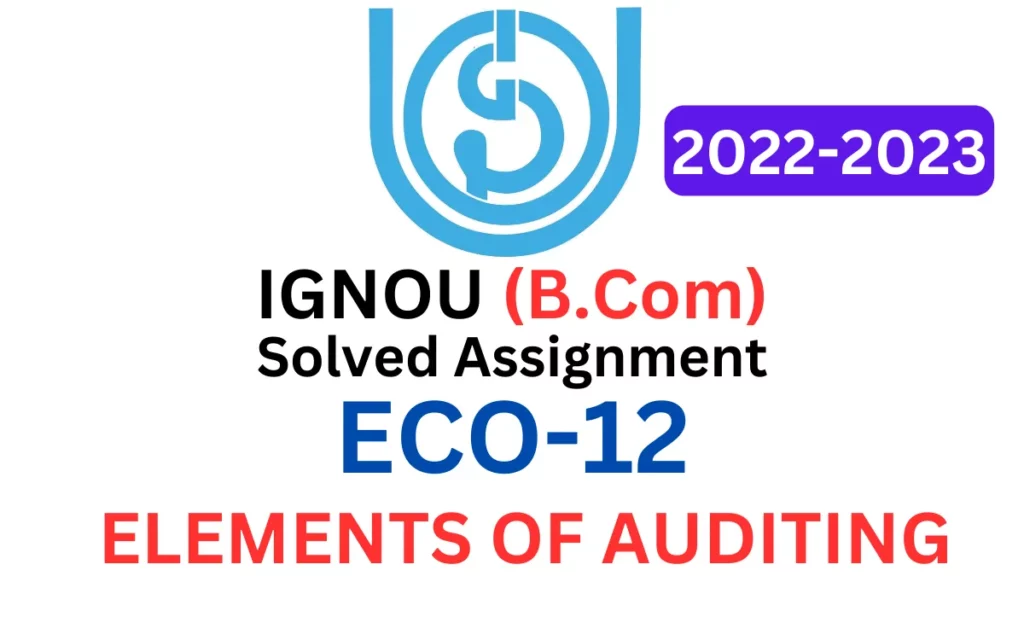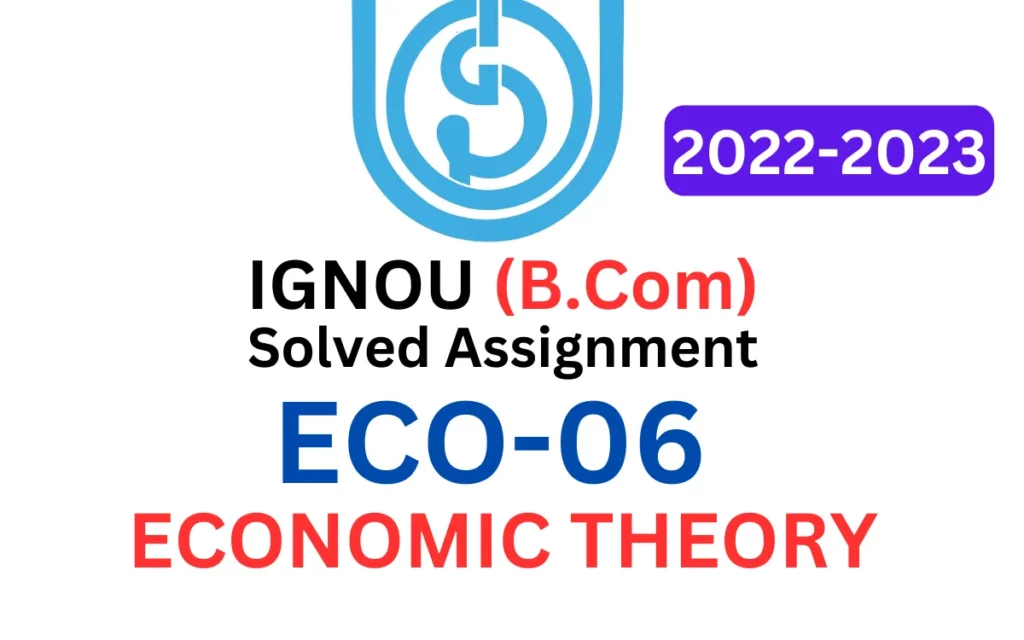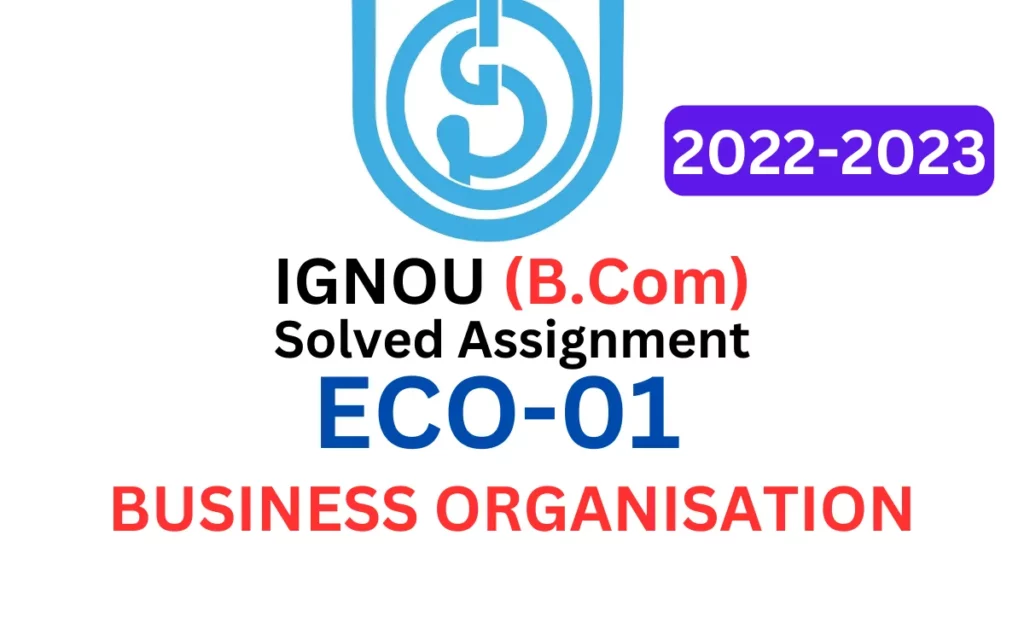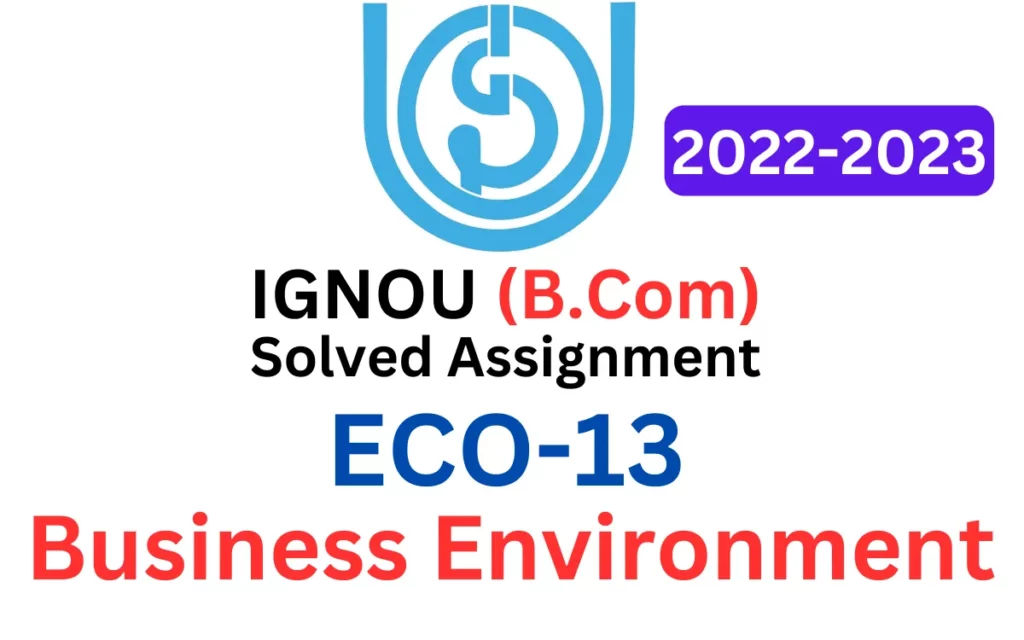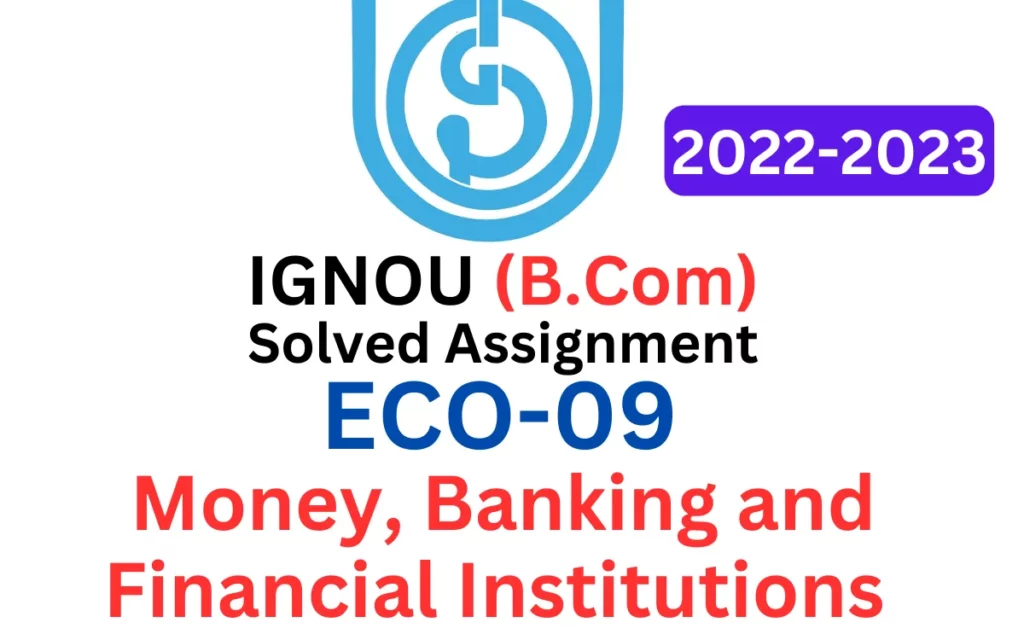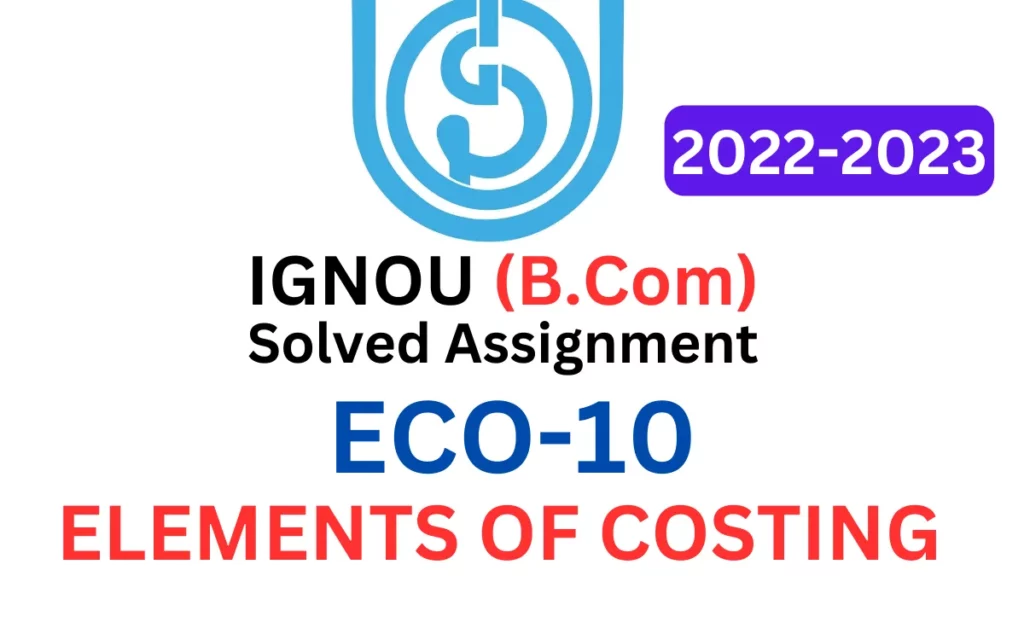Contents
- 1 1. Who are eligible to be appointed as secretary of a government department? Briefly explain the administrative and executive functions of the secretary of a government department.
- 2 2. “The success or failure of a meeting depends on its chairman.” Elucidate the statement with special reference to the powers and duties of the chairman of a meeting.
- 3 3. (a) What are the basic principles of business correspondence?
- 4 (b) Write a complaint from Hari Ram to the Railway Authorities, Bareilly, that a railway parcel sent to his address has not reached.
- 5 4. Distinguish between the following:
- 6 a) Publicity and advertisement
- 7 b) Formal and Informal Reports
- 8 5. Write short notes on the following:
- 9 a) Practising company secretary
- 10 b) Resolutions
- 11 c) Correspondence with public utilities
- 12 d) Precis writing
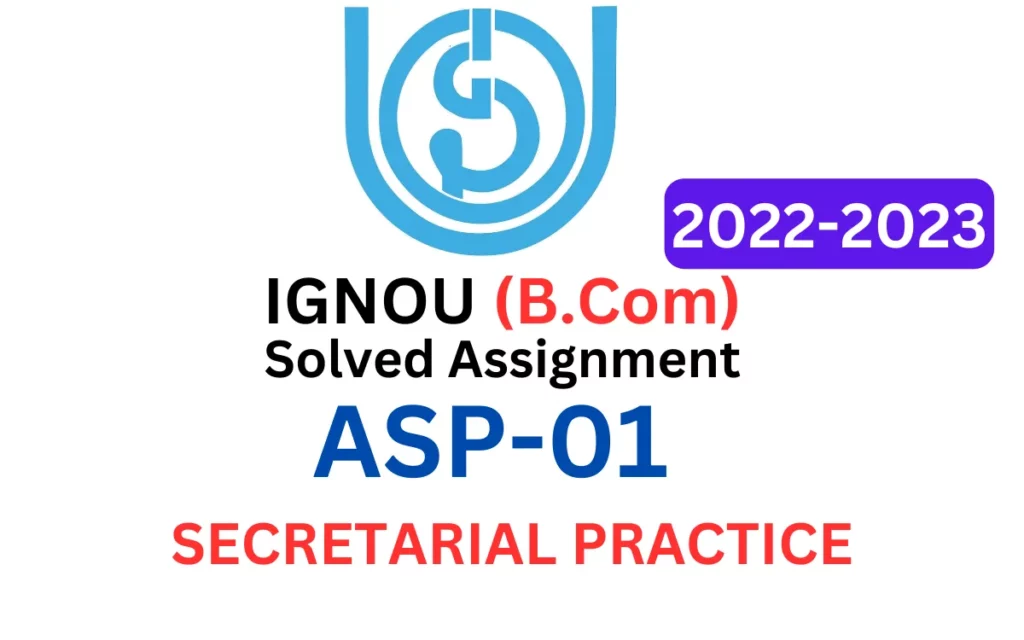
| Title | ASP-01: IGNOU B.Com Solved Assignment 2022-2023 |
| University | IGNOU |
| Degree | Bachelor Degree Programme |
| Course Code | ASP-01 |
| Course Name | SECRETARIAL PRACTICE |
| Programme Name | B.Com |
| Programme Code | BDP |
| Total Marks | 100 |
| Year | 2022-2023 |
| Language | English |
| Assignment Code | ASP-01/TMA/2022-2023 |
| Assignment PDF | Click Here |
| Last Date for Submission of Assignment: | For June Examination: 31st April For December Examination: 30th September |
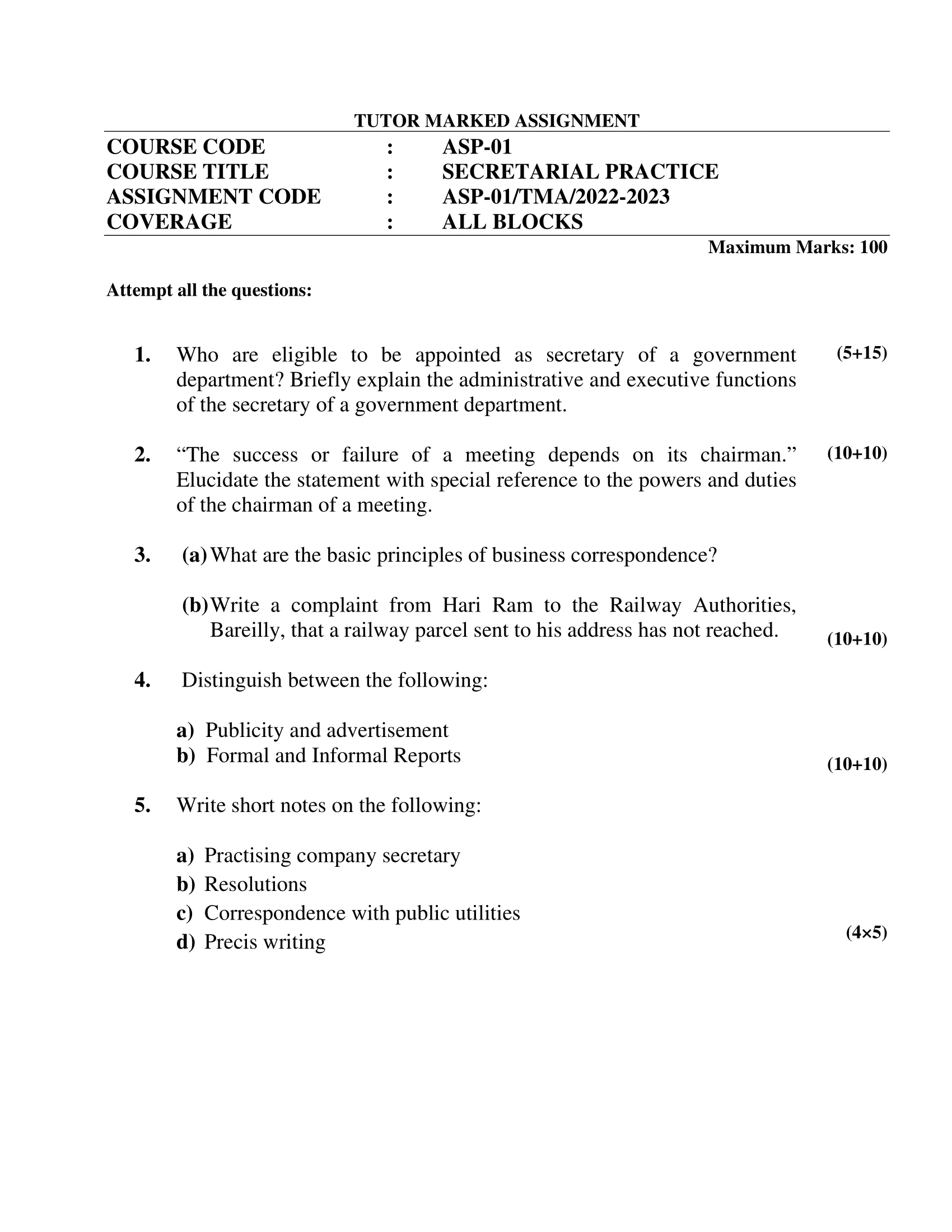
1. Who are eligible to be appointed as secretary of a government department? Briefly explain the administrative and executive functions of the secretary of a government department.
Ans: The eligibility criteria for the appointment of a Secretary of a Government Department vary from country to country, but generally, a person must possess the following qualifications:
- Citizenship of the country in which the department is located
- Minimum age requirement (usually 18-21 years)
- Educational qualifications as specified by the government (such as a degree in public administration, political science, law, economics, etc.)
- Relevant experience in government or public administration
- Knowledge of the relevant laws and regulations.
The Secretary of a Government Department is the administrative head of the department and is responsible for managing and supervising its day-to-day operations. The administrative functions of the Secretary include:
- Planning and budgeting: The Secretary is responsible for developing plans and budgets for the department, and ensuring that they are in line with the overall objectives of the government.
- Personnel management: The Secretary is responsible for recruiting, hiring, and managing staff within the department, as well as ensuring that they are trained and motivated to perform their duties effectively.
- Policy development: The Secretary is responsible for developing policies and procedures that will guide the department’s operations, and for ensuring that they are implemented effectively.
- Oversight: The Secretary is responsible for overseeing the department’s operations and ensuring that they are carried out efficiently and effectively, and in compliance with relevant laws and regulations.
The executive functions of the Secretary include:
- Decision-making: The Secretary is responsible for making decisions on behalf of the department, and for ensuring that they are in line with the overall objectives of the government.
- Implementation: The Secretary is responsible for implementing policies and procedures within the department, and for ensuring that they are carried out effectively.
- Coordination: The Secretary is responsible for coordinating with other departments and agencies to ensure that government objectives are met.
- Accountability: The Secretary is accountable to the government and the public for the performance of the department, and for ensuring that it operates in a transparent and accountable manner.
2. “The success or failure of a meeting depends on its chairman.” Elucidate the statement with special reference to the powers and duties of the chairman of a meeting.
Ans: The statement, “The success or failure of a meeting depends on its chairman,” highlights the crucial role that the chairman plays in the effective conduct of a meeting. The chairman of a meeting has various powers and duties, which can significantly impact the outcome of the meeting.
Here are some of the key powers and duties of the chairman of a meeting:
- Setting the agenda: The chairman is responsible for setting the agenda for the meeting, including deciding on the topics to be discussed and the order in which they will be presented. The chairman should ensure that the agenda is clear and concise, and that all relevant issues are included.
- Conducting the meeting: The chairman is responsible for conducting the meeting, which includes maintaining order, ensuring that all participants have an opportunity to speak, and keeping the discussion on track. The chairman should be impartial and fair, and should not favor any particular participant.
- Managing the time: The chairman is responsible for managing the time of the meeting, including ensuring that the meeting starts and ends on time, and that each agenda item is discussed within the allotted time. The chairman should be aware of the time constraints and adjust the discussion accordingly.
- Encouraging participation: The chairman is responsible for encouraging participation from all attendees, including soliciting feedback and input from those who may be less vocal. The chairman should create an environment that is open and collaborative, where all participants feel comfortable contributing.
- Resolving conflicts: The chairman is responsible for resolving conflicts that may arise during the meeting, such as disagreements between participants or disruptions to the agenda. The chairman should be prepared to intervene and find a resolution that is acceptable to all parties.
- Summarizing the discussion: The chairman is responsible for summarizing the discussion and the decisions made during the meeting, and ensuring that all participants are clear on the next steps. The chairman should also provide a record of the meeting, including any action items and decisions made.
3. (a) What are the basic principles of business correspondence?
Ans: Business correspondence is a formal communication tool used in the corporate world for various purposes such as conveying information, making requests, providing instructions, and building professional relationships. The basic principles of business correspondence are as follows:
- Clarity: The communication should be clear and concise, with the main message stated at the beginning. The language used should be simple and easy to understand, and the communication should avoid jargon or technical terms.
- Tone: The tone of the communication should be professional, courteous, and respectful. It should not contain any derogatory or offensive language, and should avoid any personal biases or opinions.
- Format: The communication should follow a standard format that is easy to read and understand. The communication should be organized into clear and logical paragraphs, with headings and subheadings to break up the text.
- Grammar and spelling: The communication should be free from grammatical errors and spelling mistakes. The communication should be proofread and edited before sending to avoid any errors.
- Accuracy: The communication should be accurate and factual, with all the relevant information provided. It should be free from any exaggerations or false claims.
- Courtesy: The communication should be polite and courteous, with appropriate salutations and closing statements. It should also include expressions of gratitude or appreciation, where appropriate.
- Timeliness: The communication should be sent in a timely manner, with an appropriate level of urgency based on the nature of the communication. It should also include any deadlines or timelines, where applicable.
(b) Write a complaint from Hari Ram to the Railway Authorities, Bareilly, that a railway parcel sent to his address has not reached.
Ans: To,
The Railway Authorities, Bareilly.
Dear Sir/Madam,
I am writing to bring to your attention a serious concern regarding a railway parcel that was sent to my address but has not reached me yet. My name is Hari Ram and I reside at 123, ABC Colony, Bareilly.
On March 15th, 2023, I sent a railway parcel from Bareilly station to my address, containing some important documents and other items. However, even after several days have passed, the parcel has not been delivered to my address. I have checked with my local post office, but they have not received any information about the parcel.
I am deeply concerned about the safety of the parcel and the contents inside. As the sender of the parcel, I had entrusted the railway authorities with its safe delivery, but it has not been fulfilled. This has caused me a great deal of inconvenience and mental anguish.
I request you to look into this matter urgently and provide me with information about the whereabouts of the parcel. Please let me know if it has been misplaced or lost and what measures are being taken to find it. I also request you to take steps to ensure that such incidents do not happen in the future and take necessary action to compensate me for the loss incurred.
I hope for a prompt and positive response from your end.
Thanking you.
Yours sincerely,
Hari Ram.
4. Distinguish between the following:
a) Publicity and advertisement
Ans: Publicity refers to the act of promoting something or someone through various media channels, such as newspapers, magazines, television, radio, or online platforms, with the aim of creating awareness and interest among the public. Publicity can take many forms, such as news articles, press releases, social media posts, or viral content, and it is often initiated by a third-party source, such as a journalist or a blogger, rather than the person or organization being promoted.
On the other hand, advertisement refers to a paid form of promotion that is typically created and controlled by the person or organization promoting themselves or their products. Advertisements are intended to persuade the target audience to take a specific action, such as buying a product or service, visiting a website, or signing up for a membership. Advertisements can take many forms, such as print ads, television commercials, billboards, or online ads, and they are typically placed in media channels that reach the intended audience.
b) Formal and Informal Reports
Ans: Formal and informal reports are two types of documents that serve different purposes and are written in different styles. Here’s a brief description of each:
- Formal Reports:
Formal reports are documents that follow a specific structure and format and are typically written for a professional audience. They are often used to provide information, analyze data, or make recommendations, and they are typically longer and more detailed than informal reports. Formal reports are often written in a formal tone and use technical language, and they include sections such as an executive summary, introduction, methodology, findings, conclusions, and recommendations.
Examples of formal reports include research reports, feasibility studies, annual reports, and technical reports. Formal reports are usually commissioned by an organization, and they are often used to inform decision-making or to present findings to stakeholders.
- Informal Reports:
Informal reports, on the other hand, are typically shorter, less structured, and written for a more general audience. They are often used to provide updates, summaries, or recommendations on a specific topic or project. Informal reports are often written in a conversational tone and use simpler language, and they may not follow a specific format or structure.
Examples of informal reports include memos, progress reports, trip reports, and incident reports. Informal reports are usually written by individuals within an organization, and they are often used to communicate information quickly and informally.
5. Write short notes on the following:
a) Practising company secretary
Ans: A Practising Company Secretary (PCS) is a qualified professional who is authorized to provide a range of corporate advisory services to businesses, organizations, and individuals. The role of a PCS involves ensuring that a company complies with all legal and regulatory requirements, advising on corporate governance, and providing guidance on strategic decision-making. PCSs can also offer services such as compliance management, due diligence, and corporate restructuring.
To become a PCS, one must complete a Company Secretary (CS) course from the Institute of Company Secretaries of India (ICSI) and obtain a membership with ICSI. After completing the course and obtaining membership, one can then apply for a PCS certificate from ICSI to practice as a PCS. PCSs can work as independent consultants or can be employed by companies, law firms, or other organizations.
The role of a PCS is crucial in ensuring that businesses operate in compliance with the laws and regulations governing them. A PCS can provide valuable guidance on the legal and regulatory framework governing a business, help with compliance management, and advise on best practices for corporate governance.
b) Resolutions
Ans: Resolutions refer to formal statements that express the opinions, decisions, or intentions of a group or organization. Resolutions can be adopted by a wide range of groups, including governments, businesses, non-profit organizations, and community groups, and they can cover a variety of topics, such as social, economic, or political issues.
Resolutions typically follow a formal process, which involves drafting the resolution, presenting it to the relevant group or organization, and obtaining approval or adoption. Once a resolution is adopted, it becomes a formal statement of the group’s position or intention, and it can be used to guide decision-making or to communicate the group’s views to others.
Some common types of resolutions include:
- Policy Resolutions: These are statements that express the policy positions of a group or organization on a particular issue, such as environmental policy, foreign policy, or social policy.
- Organizational Resolutions: These are statements that express the decisions or intentions of a group or organization with respect to its own operations or management, such as decisions on budgets, staffing, or strategic planning.
- Procedural Resolutions: These are statements that express the rules or procedures governing the operations of a group or organization, such as rules for conducting meetings or voting procedures.
c) Correspondence with public utilities
Ans: Correspondence with public utilities refers to written communication between individuals or businesses and public utility companies, which provide essential services such as electricity, gas, water, and telecommunications. Correspondence with public utilities can take many forms, including letters, emails, phone calls, or online chats, and it can cover a wide range of topics, such as billing inquiries, service disruptions, installation requests, or complaints.
When corresponding with public utilities, it is important to provide clear and concise information and to include any relevant details, such as account numbers, service addresses, or dates and times of service disruptions. It is also important to be polite and respectful in all communications, even when expressing dissatisfaction or making a complaint.
Some common reasons for correspondence with public utilities include:
- Billing Inquiries: These are inquiries regarding the amount of money owed for services provided by a public utility company. Billing inquiries may relate to issues such as meter readings, rate changes, or payment options.
- Service Requests: These are requests for new or additional services provided by a public utility company, such as installation of a new electricity or gas connection or a request for a change in service.
- Service Disruptions: These are reports of service disruptions, such as power outages, water leaks, or telephone line disruptions. Correspondence with public utilities regarding service disruptions may involve reporting the issue, requesting updates on the status of repairs, or seeking compensation for any damages or losses incurred.
d) Precis writing
Ans: Precis writing is a skill that involves summarizing a longer passage or text into a shorter, condensed version. The purpose of precis writing is to distill the key ideas and information from the original text, while maintaining its tone and meaning.
To write a good precis, it is important to first read the original text carefully and understand its main ideas and arguments. The precis should then be written in a clear and concise manner, using simple and precise language.
The following are some tips for writing an effective precis:
- Begin with a statement that identifies the author, title, and the main point of the text.
- Use your own words to summarize the main ideas of the text, while retaining its key concepts and arguments.
- Avoid repetition, irrelevant details, and personal opinions in the precis.
- Keep the precis brief and to the point, usually no more than one-third the length of the original text.
- Use transitional words and phrases to link ideas and make the precis flow smoothly.
- Check the precis for accuracy and coherence, ensuring that it conveys the essential meaning and tone of the original text.
How to Download ASP-01 Solved Assignment?
You can download it from the www.edukar.in, they have a big database for all the IGNOU solved assignments.
Is the ASP-01 Solved Assignment Free?
Yes this is absolutely free to download the solved assignment from www.edukar.in
What is the last submission date for ASP-01 Solved Assignment?
For June Examination: 31st April, For December Examination: 30th October

